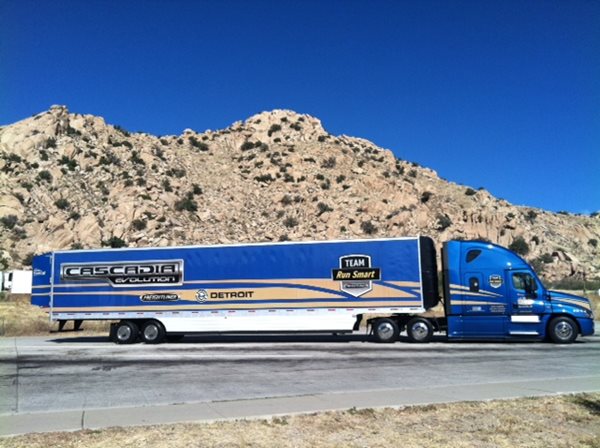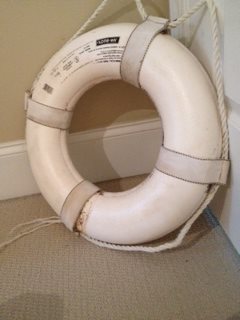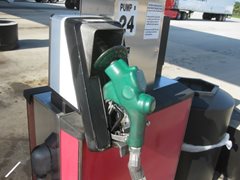
If you are on a boat and happen to end up in the water for some reason, you’ll be happy for that life preserver you were wearing, especially if you cannot swim. If the boat sank, the floatation device you were wearing could be the difference between life and death.

If you’re situation has you in the water and trying to survive, you’ll want to look for any opportunity to improve your situation. Such as: floating debris, rescue craft, land, passing boaters etc…
When dealing with fuel surcharge in the trucking industry, it reminds me of the above scenario. Long ago, when fuel began to skyrocket in price, fuel surcharge became a normal practice as a way to survive a volatile fuel market. A long term base rate could be established and the fuel surcharge would take up for any variation in fuel pricing. Most fuel surcharges are based on the assumption that fuel cost between $1.15to $1.25 and the truck averages 6 mpg. These basic numbers have been in place for well over a decade.
As we look at fuel surcharge and compare it to a life preserver, I ask myself “what have we done in the trucking industry to improve our position in regards to fuel economy?” With new technology available such as, aerodynamic enhancements on the truck/trailer, more efficient engine transmissions, axles, tires, and lubricants; the 6 mpg fuel average is going to change.
It’s only a matter of time until the shipping community applies pressure to base fuel surcharge on 7 mpg instead of 6 mpg. In fact, this change is already underway as a carrier that I’m familiar with is making changes to their fuel surcharge program which is now based on a higher fuel mileage starting point.
I look at how far I’ve improved my position in regards to fuel mileage with the Cascadia Evolution. This truck includes many  aerodynamic enhancements along with the Detroit DD15 engine, DT12 Direct Drive Transmission, Meritor Fuel Lite, rear axle configuration and Michelin wide base single tires. The trailer includes a Nose Cone, Fleet Engineers Side Skirts, ATD Dynamics Trailer Tail and Real Wheels Aero Covers on all positions. Let’s not forget…I have even covered the rain gutter on the rear of the trailer and moved the trailer license plate in order to obtain maximum fuel efficiency.
aerodynamic enhancements along with the Detroit DD15 engine, DT12 Direct Drive Transmission, Meritor Fuel Lite, rear axle configuration and Michelin wide base single tires. The trailer includes a Nose Cone, Fleet Engineers Side Skirts, ATD Dynamics Trailer Tail and Real Wheels Aero Covers on all positions. Let’s not forget…I have even covered the rain gutter on the rear of the trailer and moved the trailer license plate in order to obtain maximum fuel efficiency.
By paying attention to all the details, my fuel mileage has improved from the low 7’s to nearly 9.7 mpg today. During my time in the water (so to speak) I did everything I could to improve my situation and have reached the success of dry ground. I hope everyone out there is using this time period to improve their situation so that they can prosper as well.